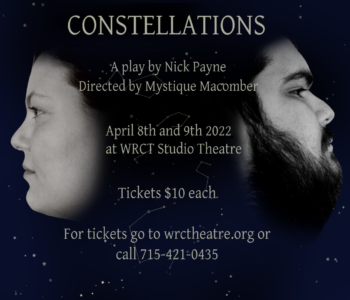
Ageism in the workplace and job search impacts older…
Ageism in the workplace – and the job search – is a real thing. I’ve had some experience with it.
What is ageism?
Ageism is stereotyping or discrimination based on age. According to the World Health Organization, ageism has harmful effects on the health of older adults. Older people feel excluded in their communities when they are overlooked for employment and social services and stereotyped in the media.
Older people who feel they are a burden because of ageism also may feel their lives are less valuable, which can make them vulnerable to depression and isolation, according to WHO.
Conversely, people with a positive outlook on aging are likely to live 7.5 years longer, according to the Wisconsin Institute for Healthy Aging, which has a program to promote this fact.
What is ageism in the workplace?
Ageism in the workplace is the marginalization of employees who are older, stemming from a belief that they are incapable of the work they once performed.
In my experience, ageism is subtle. It’s thinking that someone older is stuck in her ways, unwilling to unable to learn new things. She’s seen as someone who slows down the process because she doesn’t “get it.”
Those who hold these beliefs tend to overlook the value of experience and the work ethic of many older workers.
When I worked in newspapers, I learned the value of experience. We highly prized institutional knowledge. The copy editor who could recall that an event happened 10 years ago, not five as a reporter had written, was ahead of the game. If you knew the history of a place, the key players, the unpublished gossip and whom to call when you really needed to know something – you were gold.
Then, our community newspapers became part of a bigger company, and we started to lose our older employees. Some retired; some were “bought out.” The company didn’t care about the knowledge or experience that was lost.
That’s just the way it is.
Older workers lose jobs
I knew it would happen to me. While I technically had worked for three newspaper companies in my career, all of my time came together in the end under one parent company. With some job changes, my pay increased, and in the “good” years, we got raises. Newspapers typically don’t pay well, but if you stick around long enough, you can live on what you earn.
Rather than wait for the ax to fall, I had another opportunity, and I took it.
About a year later, the newspaper company did another round of downsizing, and the people let go were the ones most like me – similar roles, similar ages, similar years of work. I knew it would have been me, if I’d still been there. They weren’t old, though. Maybe middle-age or a little older. They simply had been there too long.
Their experience and knowledge counted for nothing.
What is ageism in the job search?
Ageism shows up in the job search when a company is looking to hire new talent. “New talent” could be code for “young person.”
I read an article in The Atlantic about the wording used in many of today’s job listings (“Marketing ninjas!” “Online warriors!” “Pop-culture gurus!”). The language can skew who will apply for jobs and who the businesses will hire.
Experienced workers likely won’t connect with those descriptions – although they could do the work.
Take me, for example. I continue to learn techniques, programs and information that will benefit me in my career. I pay for classes, research, read articles, work out how to do things on my website, watch videos, attend webinars and learn new programs. Would I describe myself a marketing ninja? No, but I can tell you about SEO and SEM and how to use long-tail keywords effectively.
However, I am not likely to apply for a “marketing ninja” job. I can read between the lines, and I know what kind of person the business wants to attract, and it’s not me.
They would think I’m too old. Technically, I’m probably a little over middle-age, but in the world of startups and fast-paced firms looking to get an edge, they see me as old. My experience is negated, because they don’t see the value in it.
Does money play a part in this ageism in the job search? Perhaps. Companies might feel that older workers would demand higher salaries. Yet, in my case, because I’m living differently than when I was a younger person with a family, I can accept a lower salary yet maintain the quality of life I desire.
Applying based on age
Before I apply for a job, I always research the company. First stop is its website, where I read everything I can to learn how it started, what it does, how it operates, what its goals are and what kind of people work there. It’s not always easy to find all of that – or understand it — which can be a strike against the company.
Often, websites will have pictures of the leadership team and sometimes employees. I can tell at a glance if I should apply. I look for people who look like me — my gender and my age. Race isn’t a factor, because often the faces staring back at me are varied.
But if every person on the page looks to be younger than 30, I’m less likely to apply. While I can pass for 10 years younger than my actual age, a group of all young people is more likely to choose someone who looks like them — not their mom. If the job is a great fit otherwise, I may still apply. It’s not a total deal-breaker for me.
Perhaps I’m biased myself, but I’ve never heard back from one of these companies populated by young people. Not even a thanks-but-no-thanks email. It makes me feel like it’s not worth my time to apply.
On the flip side, if while doing my research I see at least a few faces in my age range – a good mix of people – I’m more likely to apply.
Limit age references
Job sites suggest you limit references in your resume that might show your age. Don’t use the date you earned your degree. Focus on skills rather than jobs. Limit dates for jobs if you can, especially those from many years ago that only serve to emphasize your age.
Early in my job search, I proudly proclaimed that I was an experienced journalist with more than 20 years of expertise. Foolish me.
Now I say I’m a journalist with experience in copy editing, writing and marketing. I’ve lumped many years’ worth of jobs into a single segment to not emphasize my earlier work.
If anyone asks, I’ll happily tell them about all my jobs, but my resume is meant to help me get an interview, and that means focusing it on what I can do now – not what I did nearly 30 years ago.
What to do about ageism
Being aware of ageism in the workplace is the first step. We probably all have been guilty of categorizing someone as “old” at some point in our lives, particularly when we are young. The older you get, the less likely you are to see others as “old,” just maybe “older” than you.
I have a friend who likes to say, “Don’t act like an old person.” He’s joking, but he means not to be set in your ways or do things like a stereotypical “old” person.
There probably isn’t an easy way to get away from stereotypes. We are surprised when we meet someone older who doesn’t act her age. News stories report on people who do the unusual things – skydiving, car racing, motorcycle riding – when they are older.
The Baby Boomers who are holding onto more youthful pastimes will help shift the idea of what’s “normal” for an older person. My generation hopefully will do the same.
Already, we see people working longer – not retiring at 62 or 65. Entrepreneurs start businesses later. Families have children later. Much in our world skews later and older these days.
There probably always will be some prejudice for age, just as there always will be those who hold prejudices based on other factors. That’s apparently part of the human condition.
But maybe ageism in the workplace and in the job search will swing back the other way, and experience and knowledge will return to being attributes we aim to attain.
Be a Better Writer Tip
Resume writing: Tailor it
You’ve probably heard this, but I’ll say it, too. Tailor your resume to the position for which you apply.
Anyone of my age recalls the days when you had to print copies of your resume to mail with a typed cover letter. You couldn’t tweak it for every job. It was cost-prohibitive.
I still recall the paper and envelopes I chose for my resume, which was very plain by today’s standards. I thought it looked elegant. At least I was able to get interviews and ultimately a job with the copies of that resume.
Now, our resumes are electronic, with links, photos, color boxes, reverse type, rules – you name it. Mine includes my “mug shot” — newspaper parlance for a small picture of me. I will keep it as long as I look younger than I am.
Since I’ve been freelancing, I’ve tweaked my resume so many times – I can’t count the versions. It’s a work in progress.
It’s simple enough, though, to change the language in my profile paragraph, and to add, subtract or move around bullet points in my experience section. I even will tweak my skills section if a potential employer is looking for a particular skill I have but that I haven’t included in my standard list. A simple save-as, then convert it to PDF, and it’s ready to go.
If you’re working on your resume (or writing one for someone else), set it up so you can easily change it.
Job sites suggest you add keywords from the job listing to your resume. Sometimes, resumes are scanned by computer programs to ensure applicants have the right skills before they are forwarded to a real person. Adding those keywords can help your resume get through the initial screening.




2 COMMENTS
nice blog on ageism Mystique. I can relate to several observations (obviously). looking forward to seeing you again when you get to ye olde Marshfield!
Thank you, Carla. Ageism affects a lot of people. I’m looking forward to seeing you and all the Marshfield crew, too!